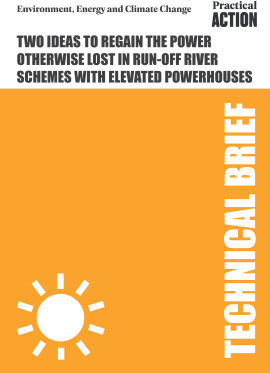
Energy Access and Urban Poverty
Energy and everyday life in an informal settlement in Maputo, Mozambique
V Castán Broto, Lucy Stevens, D Salazar
The great majority of people without access to modern energy services are rural and, rightly, much of the discussion on energy access focuses on how to reach them. However, despite their greater geographical proximity to grid electricity and other supplies of clean energy, people living in poverty in urban areas also lack energy access. The World Bank’s own trials of the Global Tracking Framework demonstrated this for Kinshasa, Democratic Republic of the Congo. We need a greater understanding of how people access energy in these contexts, and what the barriers and opportunities are for improving that access. This paper explores these questions in the context of an in-depth study of the Chamanculo C settlement in Maputo, Mozambique.
Published: 2017
Pages: 20
eBook: 9781780449296
| Introduction | |||
|---|---|---|---|
| Participatory mapping of energy landscapes | |||
| Dimensions of energy supply, energy access, and energy uses in Maputo | |||
| Findings from the participatory mapping exercise | |||
| Conclusion |
Lucy Stevens
Lucy Stevens is Senior Policy and Practice Adviser with Practical Action, UK. She leads the organisation’s influencing and learning strategy on energy access.
Introducing MOZLEAP: An Integrated Long-Run Scenario Model of the Emerging Energy Sector of Mozambique
Mahumane, Gilberto
Mulder, Peter
(2015)
https://doi.org/10.2139/ssrn.2644141 [Citations: 5]The Palgrave Handbook of Global Sustainability
Building More Sustainable and Resilient Urban Energy Infrastructures in Southern Africa
Chirisa, Innocent
Mhlanga, Gift
2021
https://doi.org/10.1007/978-3-030-38948-2_66-1 [Citations: 0]The Palgrave Handbook of Global Sustainability
Building More Sustainable and Resilient Urban Energy Infrastructures in Southern Africa
Chirisa, Innocent
Mhlanga, Gift
2023
https://doi.org/10.1007/978-3-031-01949-4_66 [Citations: 0]Mozambique Energy Outlook, 2015-2030. Data, Scenarios and Policy Implications
Mahumane, Gilberto
Mulder, Peter
(2015)
https://doi.org/10.2139/ssrn.2644144 [Citations: 4]A research agenda for a people-centred approach to energy access in the urbanizing global south
Broto, Vanesa Castán
Stevens, Lucy
Ackom, Emmanuel
Tomei, Julia
Parikh, Priti
Bisaga, Iwona
To, Long Seng
Kirshner, Joshua
Mulugetta, Yacob
Nature Energy, Vol. 2 (2017), Iss. 10 P.776
https://doi.org/10.1038/s41560-017-0007-x [Citations: 58]





